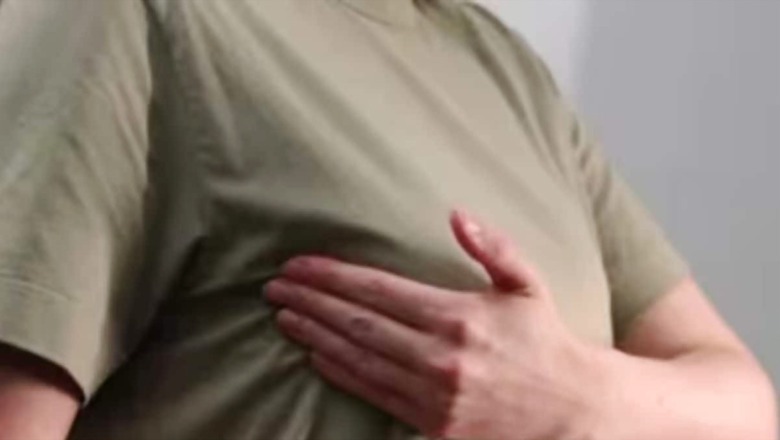
views
Actress Hina Khan’s recent news that she has been diagnosed with stage 3 breast cancer has left her admirers in shock. Hina is a well-known face in the entertainment industry and is considered a fashion icon. Actors and co-stars of Hina Khan have taken to Instagram to support her.
The incidence of breast cancer is increasing among younger women, so women need to opt for screening and early detection of the cancer on time.
Breast cancer occurs when abnormal cells in the breast grow uncontrollably and form a tumour. While older age is a significant risk factor, breast cancer can also affect women in their 20s, 30s and 40s. Young women may find it particularly difficult to detect breast cancer early because early detection recommendations are lower and they know less about their risk factors. Watch for the following early signs of breast cancer to seek timely medical intervention.
A noticeable lump or thickened area in the breast or armpit is often the first sign of breast cancer. The lump may feel different from the surrounding tissue and may persist for a long time.
Unexplained changes in breast size, shape or symmetry should be observed. These include swelling, shrinkage or asymmetry that are not related to the menstrual cycle. While breast pain is rarely a symptom of breast cancer, any new, persistent pain or discomfort in the breast or nipple should be evaluated by a doctor.
Redness, dimpling, wrinkling or flaky skin on the breast (similar to orange peel skin) may indicate underlying problems and should be evaluated promptly.
Changes in the appearance of the nipple, such as inversion (turning inward), retraction or discharge (not breast milk), should be evaluated by a healthcare professional.
A personal or family history of breast cancer, particularly with mutations in the BRCA1 or BRCA2 genes, increases the risk. Previous radiation treatment to the chest or breasts, for example for Hodgkin’s lymphoma, increases the chance of developing breast cancer later in life. Early menstruation (before age 12) or late menopause (after age 55), hormone replacement therapy and taking oral contraceptives can affect breast cancer risk. Obesity, excessive alcohol consumption and a sedentary lifestyle can contribute to an increased risk of breast cancer.




















Comments
0 comment